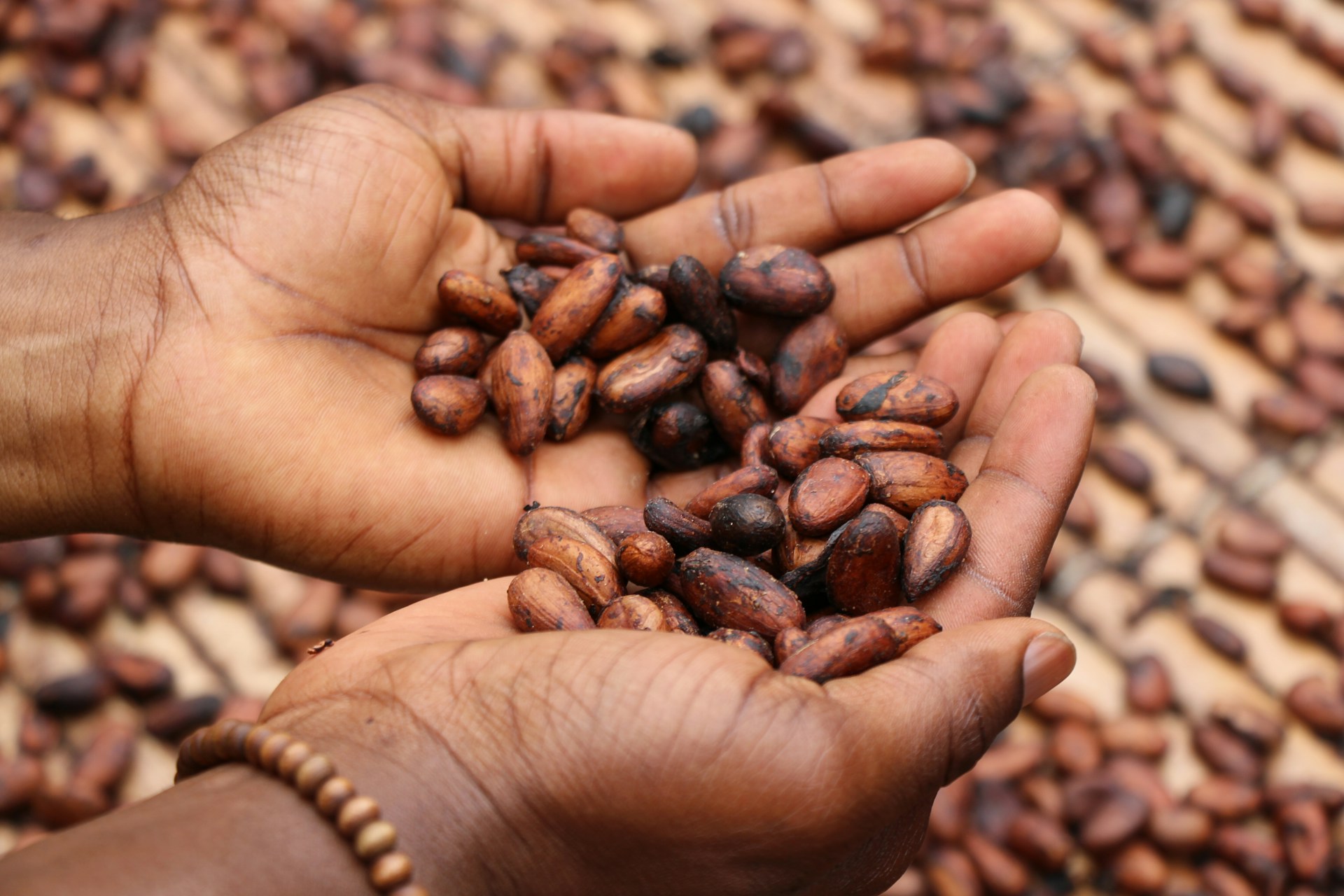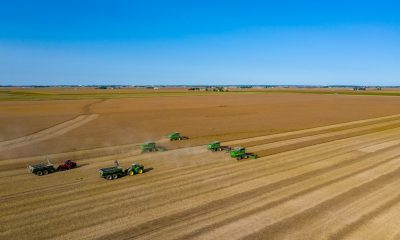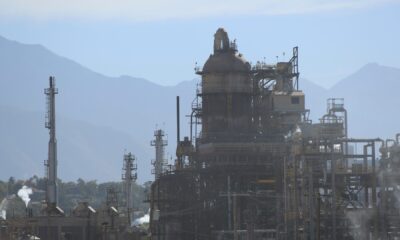Africa
Ghana Announces Sharp Increase in Cocoa Prices to Support Farmers
Ghana’s government has announced a historic increase in the farmgate price of cocoa ahead of the upcoming 2025-26 growing season in a move intended to improve earnings for local producers. The price hike also aligns with campaign pledges made by President John Mahama, who was elected in December. Mahama had vowed to allocate up to 70 percent of the export (FOB) price to cocoa farmers.

Ghana’s government announced on Monday a historic 62.58 percent increase in the farmgate price of cocoa as part of preparations for the upcoming 2025–2026 growing season. The move is intended to improve earnings for local cocoa producers and could place pressure on other major producing countries, notably neighboring Côte d’Ivoire, to follow suit.
Ghana Responding to Supply Constraints and Climate Pressure
This substantial increase comes amid ongoing tensions in the global cocoa supply chain, driven by the effects of climate change and the aging of plantations across West Africa. Ghana’s decision could contribute to further price surges on international markets, where cocoa prices have already experienced significant volatility.
A New Farmgate Price for Ghana Growers
At a press conference held in the capital city of Accra, Ghana Finance Minister Cassiel Ato Forson announced that the producer price would rise from $3,100 (approximately €2,678) per metric ton to $5,040 (about €4,353).
“The cocoa farmer remains a cornerstone of Ghana’s economy. This government is committed to ensuring that they fully benefit from the value created in the sector,” Forson said.
Strategic Timing Ahead of Ivorian Pricing
Ghana traditionally sets its farmgate price ahead of Côte d’Ivoire, its principal rival in the global cocoa market. Currently, Ivorian farmers receive 1,500 CFA francs per kilogram—roughly €2—equivalent to $2,440 (about €2,073) per metric ton.
The price hike also aligns with campaign pledges made by President John Mahama, who was elected in December. Mahama had vowed to allocate up to 70 percent of the export (FOB) price to cocoa farmers.
At present, Ghana’s FOB cocoa price averages around $7,200 per metric ton, based on a mix of older contracts signed at $2,600 (€2,246) during the 2023–2024 season and projected sales for the 2025–2026 season. In the current 2024–2025 season, producers received approximately 63.9 percent of the FOB price, or $3,100 out of a $4,850 base (€4,189).
Macroeconomic Improvements Enable Ghana Adjustment
According to Forson, the increase was made possible by improvements in Ghana’s macroeconomic conditions, including a strengthening of the national currency, the cedi, and a reduction in inflation.
In Ghana, cocoa prices are set by the government to provide a degree of income stability for farmers. However, critics have argued that the official prices have failed to keep pace with global cocoa market trends in recent years. This lag has led some growers to abandon cocoa farming in favor of small-scale gold mining, often with environmentally damaging consequences.
In response to such concerns, the Ghana government also announced the revival of its free input distribution program for cocoa farmers. The Ghana initiative will provide fertilizers, insecticides, fungicides, spraying equipment, and flowering stimulants in an effort to improve yields and boost farmer incomes.
__
(Featured image by Etty Fidele via Unsplash)
DISCLAIMER: This article was written by a third party contributor and does not reflect the opinion of Born2Invest, its management, staff or its associates. Please review our disclaimer for more information.
This article may include forward-looking statements. These forward-looking statements generally are identified by the words “believe,” “project,” “estimate,” “become,” “plan,” “will,” and similar expressions. These forward-looking statements involve known and unknown risks as well as uncertainties, including those discussed in the following cautionary statements and elsewhere in this article and on this site. Although the Company may believe that its expectations are based on reasonable assumptions, the actual results that the Company may achieve may differ materially from any forward-looking statements, which reflect the opinions of the management of the Company only as of the date hereof. Additionally, please make sure to read these important disclosures.
First published in Sahel Intelligence. A third-party contributor translated and adapted the article from the original. In case of discrepancy, the original will prevail.
Although we made reasonable efforts to provide accurate translations, some parts may be incorrect. Born2Invest assumes no responsibility for errors, omissions or ambiguities in the translations provided on this website. Any person or entity relying on translated content does so at their own risk. Born2Invest is not responsible for losses caused by such reliance on the accuracy or reliability of translated information. If you wish to report an error or inaccuracy in the translation, we encourage you to contact us

-

 Africa1 week ago
Africa1 week agoMASI Surge Exposes Market Blind Spot: The SAMIR Freeze and Hidden Risks
-

 Crypto6 days ago
Crypto6 days agoIntesa Sanpaolo Signals Institutional Shift With Major Bitcoin ETF Investments
-

 Biotech2 weeks ago
Biotech2 weeks agoEurope Launches Personalized Cancer Medicine Initiative
-

 Markets1 day ago
Markets1 day agoRice Market Slips as Global Price Pressure and Production Concerns Grow

























